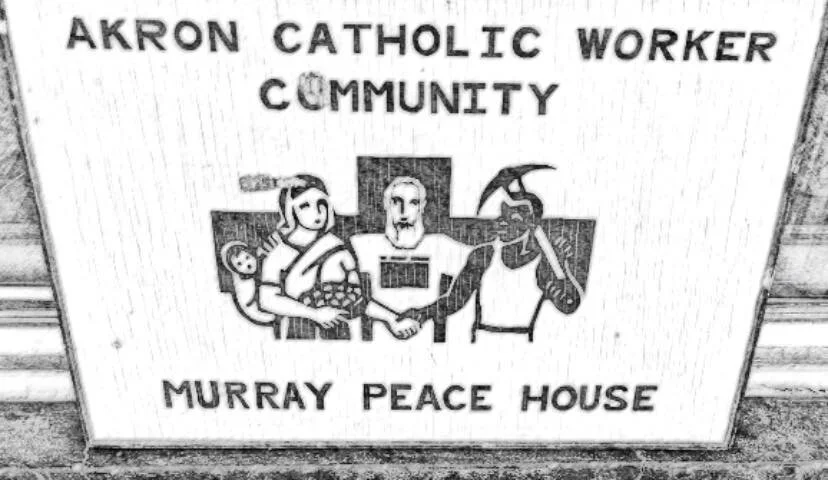Dispatches: Roundtable Discussions at the Murray Peace House
Today was wild, long, lovely, and wonderful!
It is my birthday, and I celebrated with some pretty amazing folks! I was honored to facilitate the first of our new Roundtable Discussions at the Akron Catholic Worker Peace House. It was a soul-stirring experience. My life has been full of great moments, but getting to spend an evening in the presence of Sister Catherine is an life-giving experience all its own.
My dear friend, Angela Miller, was the Executive Producer of the documentary “Sister: The Life Ministry of Sister Catherine Walsh,” which was Directed by Josh Gippin.
Our focus was tonight on the first of Peter Maurin’s Easy Essays, from the first edition of the Catholic Worker. We talked about humanity and corporations, institutions and community. We talked a lot about power.
It feels so healing to be with good people in a place that feels so much like home!
Dorothy Day said that the Catholic Worker was aimed at constructing a new social order built on Peter Maurin’s three-point program:
(1) Roundtable Discussions,
(2) Houses of Hospitality, and
(3) Farming Communes.
I think this list is so elegant. It is rooted in the belief that a healthy community is the extension of healthy souls. Maurin’s program includes nourishment for both the individual soul and the soul of the community. It is mind and heart and hands at work. It is formation, service, and justice at work.
Peter Maurin taught that the Roundtable Discussions were for the “clarification of thought.” As I explained tonight, I see these discussions as a way of orienting us as we chart a way forward, building a community round the ideas we lay on the table.
This is why I’ll be reading and posting a lot more Catholic Worker and Liberation Theology stuff in the weeks and months to come. Let me know if you have a particular favorite to consider.
While I don’t currently have plans for building a Farm Commune, I am spending a lot of time helping people get re-acquainted with the sacredness of the land. With the Farming Communes, Dorothy Day was helping people of faith rediscover the need to get our hands in the sacredness of the soil while constructing a new social order. Ched Myers refers to this as the work of connecting “the seminary, the sanctuary, the streets, and the soil.”
Dorothy Day wrote, “We are making this move because we do not feel that we can talk in the paper about something we are not practicing. We believe that our words will have more weight, our writings will carry more conviction, if we ourselves are engaged in making a better life on the land.”
As I continue to learn and talk about the relationship between permaculture, gardening, sacred placemaking, food forests, responding to climate change, and building community, I will need to be intentional about the theologically-deep roots that inspire me—especially the practical theology of Dorothy Day and Peter Maurin’s three-point program.

